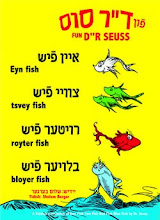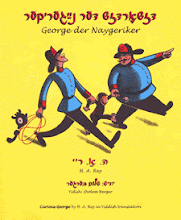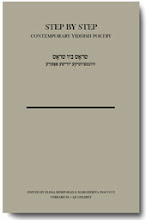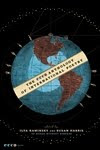When this study on breastfeeding and IQ was hyped in the press (MSNBC; see WebMD for a better take) why did no one mention that the pediatricians who rated the IQ of the children in question (more vs. less breastfeeding) were not blinded to which group the children were in?
I would understand if the findings of the study were a slam dunk, but they aren't: verbal IQ was the only category with a statistically significant difference (performance and total were not statistically significant), and the IQ difference is probably not behaviorally significant in any case (what's five or seven points?).
Given that the differences are small and possibly not statistically significant, it behooves those reporting the news to give a sense of potential sources of bias: factors which could skew the results in one way or another. And one way in which results can be skewed is for raters to "know" or "guess" while rating the children in one group that their IQ should be higher. We are all inherently biased creatures - blinding is the way, in modern epidemiology, to reduce bias. When small results are claimed (as they are here) a source of bias like this is quite worrisome.
The cognitive benefits of breastfeeding remain unproven.
(Of course my son is being breastfed - with formula too. But the reason he'll grow up smart, God willing, is because his mother is smart.)
5/30/08
5/29/08
Grass-roots beef
Not surprising: the organizational impetus and scholarship behind the growing concern with Rubashkin's - this comes from the Conservative movement's rabbis. But the grass-roots activism comes from the Orthodox (albeit the most liberal).
5/27/08
A bright-eyed fish (or: how do you write "ghoti" in Yiddish?)
I had the pleasure just now of holding in my hot little hand a sample copy of Eyn Fish Tsvey Fish Royter Fish Bloyer Fish, our new Yiddish translation of Dr. Seuss's ichthian classic. It looks yellow and lovely and typo free. (Jinx!) More details when the whole shipment wends its way to us from Singapore. Save up your pennies!
(The cat and the monkey you already have, yes?)
(The cat and the monkey you already have, yes?)
5/26/08
PTSD in the military
The findings suggest that psychiatric disorders in Marines are diagnosed most frequently during the initial months of recruit training rather than after combat deployment. The disproportionate loss of psychologically unfit personnel early in training creates a "healthy warrior effect," because only those persons who have proven their resilience during training remain eligible for combat.
Labels:
epidemiology,
healthy warrior effect,
military,
psychiatry,
PTSD
Saving a life - according to the doctors
A conversation in the bikur cholim room:
"Doctor, if a man had chest pain, can he walk home for two hours [on Shabbos]?"
"It depends what kind of pain."
"The doctors said it wasn't heart pain. Can he walk home? I don't think it's safe to walk home. The rabbi said he could take a car home."
"Doctor, if a man had chest pain, can he walk home for two hours [on Shabbos]?"
"It depends what kind of pain."
"The doctors said it wasn't heart pain. Can he walk home? I don't think it's safe to walk home. The rabbi said he could take a car home."
From this conversation (which went on for some time) I learned a number of things. One of them was that the guy in question (who got to ride back to Borough Park on late Friday night via car service - I wonder if he got dropped off a couple of blocks from home?) has 11 kids in his house. No wonder he's having chest pain.
The other was that the Satmar rebbe (the recently deceased one? one or more of his quarreling heirs?) apparently was of the opinion that presenting to the hospital with chest pain was enough of a sofek pikuach nefesh to make riding in a car on the Shabbat permissible.
This raises all sorts of questions, predominant among which (as usual) is whether this opinion as relayed to me by Some Random Satmar Guy is faithfully rendered at all. Maybe the Satmar rebbe (or various present-day quarreling rebbes) holds nothing of the sort. If that's the case, never mind.
However, let's assume that the above rendering is true. Then two questions: (a) is a doctor the right person to ask for the definition of sofek pikuach nefesh? (b) if a doctor is the right person to ask, how would she judge?
A doctor might not be the right person to ask because one might hold (I don't, but one might) that halachic categories are to be determined by halachic authorities. Just as pikuach nefesh has a halachic cutoff (several, actually, but "a dangerously ill person" being the most prominent among them), so does sofek pikuach nefesh. The problem is that while there are intricate discussions about the precise definition and interpretation of safek sfeika, the issue of sofek itself is something I'm not aware of any conclusive opinions about. Is doubt probabilistic, intuitive, psychological?Thus even the strict constructionists - which I am not - who believe in immutable and exactly specified halachic categories would have great difficulty specifying a sofek pikuach nefesh, let alone a pikuach nefesh, without the help of health workers.
The question is, how are we to translate halachic categories into medical ones? There are sick people who look terribly ill to the layperson but a doctor knows (or is said to know!) that these people will get better. The converse is true.
Then it is not rabbis alone to whom we need to have recourse in the definition of sofek pikuach nefesh (as I write this I more and more realize that pikuach nefesh itself has the same definitional complexities), but health care professionals (most often doctors) together with rabbis.
I don't think doctors can make the definitions; that's for halachah to work out with their help. But doctors do need to figure out some way to translate their thoughts into lay-cum-halachic language. And that is difficult, for epistemologic, not just lexical reasons.
In the next post I consider how a doctor might answer the question, "Will I die with this chest pain, doctor?" In the interim, though, consider the possibility that the doctor is not the right person after all, but the community.
An example of this position is found in an interesting article by a Rabbi M. M. Farbshtein (I don't know if I'm transliterating his name correctly) in the journal Assia (my translation):
[T]he question up to what level of possibility [doubt, sofek] something is considered sofek pikuach nefesh does not have an objective answer, but rather [is according to] the assessment of the community that the activity was done for the sake of saving a life [pikuach nefesh]. The situation in which such an activity is required is considered to be "sofek pikuach nefesh."
The question then becomes: what community are we talking about, and how does it decide?
That's too big for now. We'll return to the doctors in the next post. What does "risk of death" mean for a doctor contemplating a patient with chest pain?
5/23/08
A letter to Sholom Rubashkin
Read the letter here. ("Effective June 15, 2008 we will stop patronizing any restaurant which serves your meat.")
5/12/08
Patient docility
Some call it patient compliance; the more current term is patient adherence. Retro is cool now, though. (I know a guy who wants to call Yiddish zhargon again [translation of headline: "Say it in Zhargon!".)
So we might as well follow the retro trend and call it patient obedience. Just like they should have termed it with all honesty in the good old days.
So we might as well follow the retro trend and call it patient obedience. Just like they should have termed it with all honesty in the good old days.
5/8/08
I love American Spanish!
 The picture is from a bathroom in the Bellevue adult outpatient medicine clinics. I also know the phrases apretar el botón or tirar [de] la cadena - but I like floshar much better.
The picture is from a bathroom in the Bellevue adult outpatient medicine clinics. I also know the phrases apretar el botón or tirar [de] la cadena - but I like floshar much better.In our Yiddish at home we say aroplozn dos vaser; I know people have also said (op)shvenkn dem klozet. Of course, just like American Spanish, in American Yiddish nowadays 99% of people say (I bet) floshn. I use that word too, with guilty pleasure.
Labels:
flush the toilet,
Spanish,
translation,
Yiddish
5/7/08
What do you know and when do you know it?
Doctors and patients think differently. One way to understand this difference is to ask the question: how do doctors and patients know? If we try to understand our own ways of knowledge (epistemology), how our patients might know, and how the two differ, this might be productive for our practice of medicine and our patients' health.
See my poster on the topic. When you're done looking, check out the thought-provoking companion exercises. Lastly, make yourself a cup of tea (Lapsang Souchong), sit down, take a minute, and write down your epistemology on a piece of paper. Please e-mail that epistemology to me; I'd like to start a database of such statements-of-epistemology. So far I have an N
of ... 1.
See my poster on the topic. When you're done looking, check out the thought-provoking companion exercises. Lastly, make yourself a cup of tea (Lapsang Souchong), sit down, take a minute, and write down your epistemology on a piece of paper. Please e-mail that epistemology to me; I'd like to start a database of such statements-of-epistemology. So far I have an N
of ... 1.
Subscribe to:
Posts (Atom)








